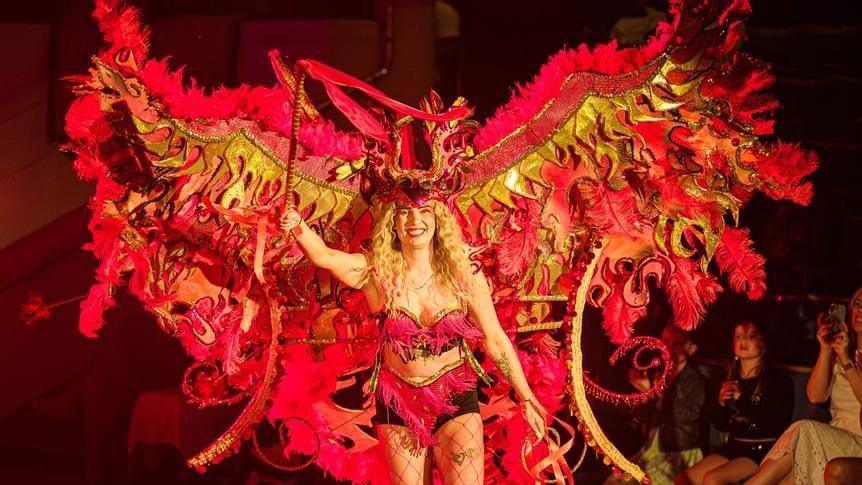'Why I celebrate the true meaning of carnival'
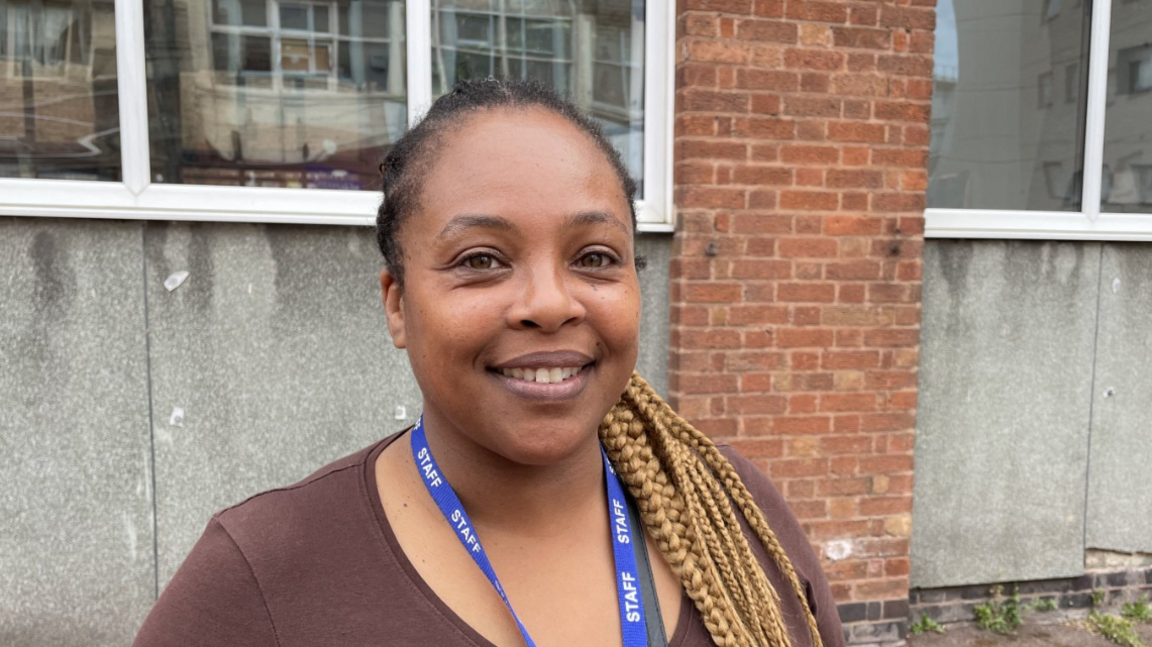
Joanne Alexander is helping her dance troupe prepare for Leicester's Caribbean Carnival
- Published
"Take care of those hats, they were expensive," says Joanne Alexander as she hands out costumes to her 115-strong dance troupe.
Jayonemas, mostly made up of children, is preparing to perform at Leicester's Caribbean Carnival, which celebrates its 40th anniversary this year on Saturday.
Last year's event was called off with just weeks to go, with organisers citing significant financial risk and poor weather as factors behind the decision.
Joanne says the carnival, which she attended for the first time when she was eight, is "very important" to her.
"It's just celebrating emancipation, freedom and celebrating the true meaning of what carnival is as black heritage people," the 47-year-old explains.
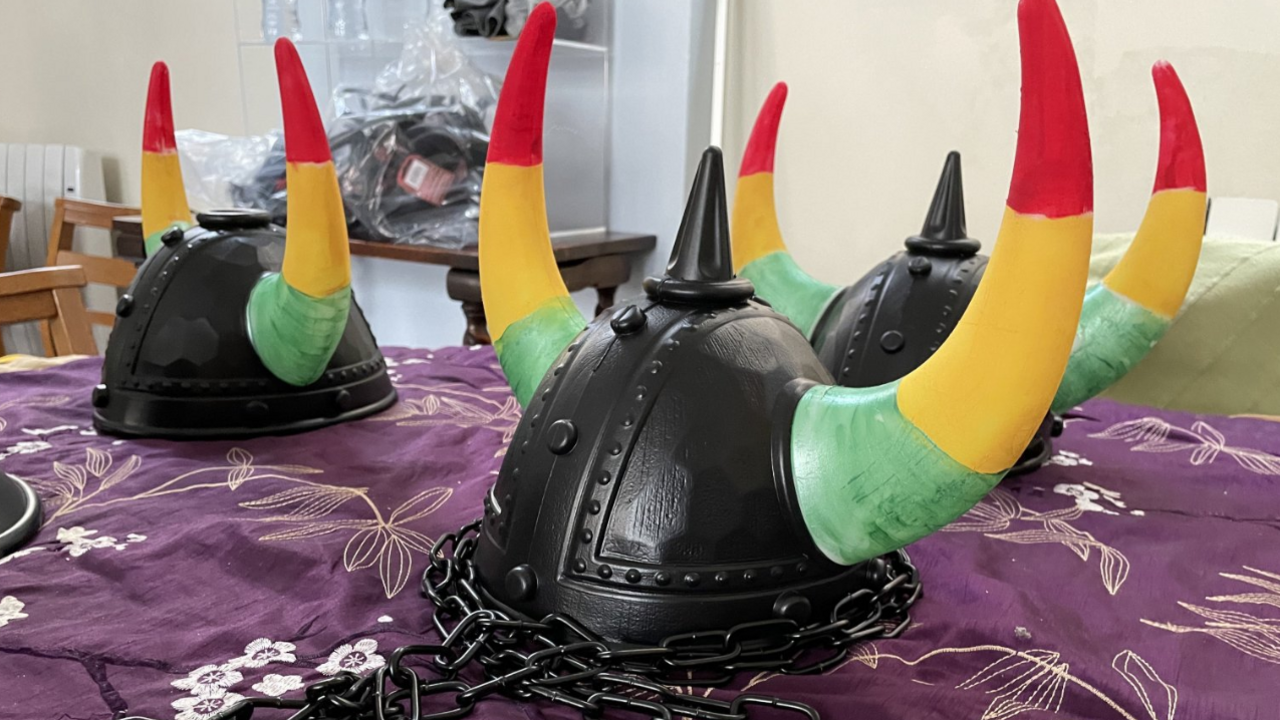
Members of Joanne's troupe will dance while wearing Jab Jab helmets
The carnival has a different theme each year and this weekend's event will celebrate the "shared origins, experiences, struggles and triumphs of black communities in Leicester".
As part of this, Joanne's troupe's performance will focus on the Jab Jab, a traditional and satirical form of masquerade that originated in Grenada.
"The back story of that is the slave masters would call black people 'devils' and basically the slaves were ridiculing them, which is why they dress up with horns and chains in black," says Joanne.
"They're taking the mick out of their slave masters."
According to the Grenada National Trust, the tradition sometimes involves carrying chains or shackles and, at one point, even carrying serpents to make themselves look fierce, a practice that has now been banned on the island.
For Joanne, who also runs a dance and drama group called Can't Blame the Youth, taking part in the carnival is about more than just dancing.
She says: "We sit down and I tell them the whole back story of why we're doing carnival."
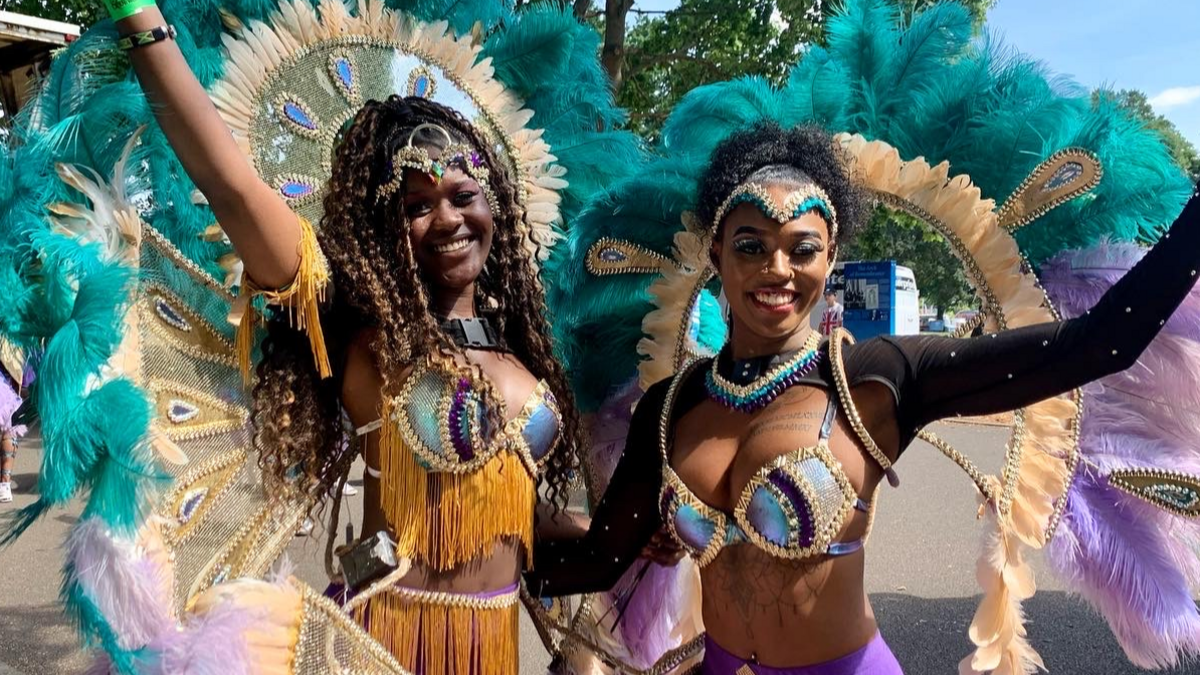
The carnival parade will pass through Leicester city centre
The first carnival was held in 1985 and, although it is a landmark anniversary year, it has been cancelled on a handful of occasions, including during the pandemic.
Tara Munroe, who is on the carnival committee and helping to organise this year's event, says the carnival was founded by Elvie Morton, who had the idea of "bringing us all together and to show that we are a community that just wants to have fun" after riots in 1981.
The Brixton riots took place at a time when racial tensions meant that many of Britain's inner cities were divided.
Rumours of police brutality against a black man resulted in angry crowds confronting officers for a few hours before the disturbances were contained.
But an arrest the following night sparked off the rioting in earnest, first in London but then spreading to many other cities across the UK.
Tara says: "So much was happening with police brutality and racism - and racism has risen too much in the last few years.
"We are so divided at the moment and I think carnival has a huge part to play in reducing that division and bringing us all together."
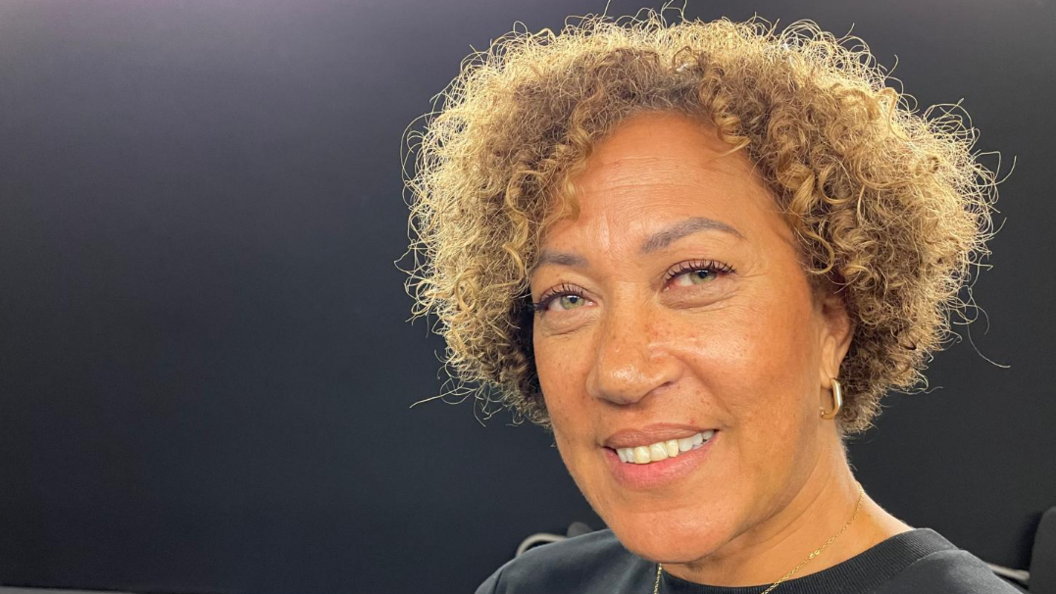
Tara Munroe is looking forward to the carnival's 40th anniversary celebrations
This year's carnival will get under way with a "vibrant" opening ceremony featuring music, food stalls and children's activities at the African Caribbean Centre on Maidstone Road, where it started four decades ago, at 10:00 BST.
Troupes will gather there before a procession moves the celebrations to Victoria Park, where the main event will take place.
The parade will follow a new route designed to "increase visibility and community engagement".
Setting off from the African Caribbean Centre, it will cross Swain Street Bridge and pass through the city centre before arriving at Victoria Park.
The main stage line-up features a mix of DJs, dancers, live bands and other performers, with entertainment set to take place between 12:00 and 19:45.
Both the opening ceremony and parade are free to attend and take part in, but the event at Victoria Park will be ticketed as it has been since Leicester City Council reduced its annual funding for the event from £100,000 to £60,000 in 2014.
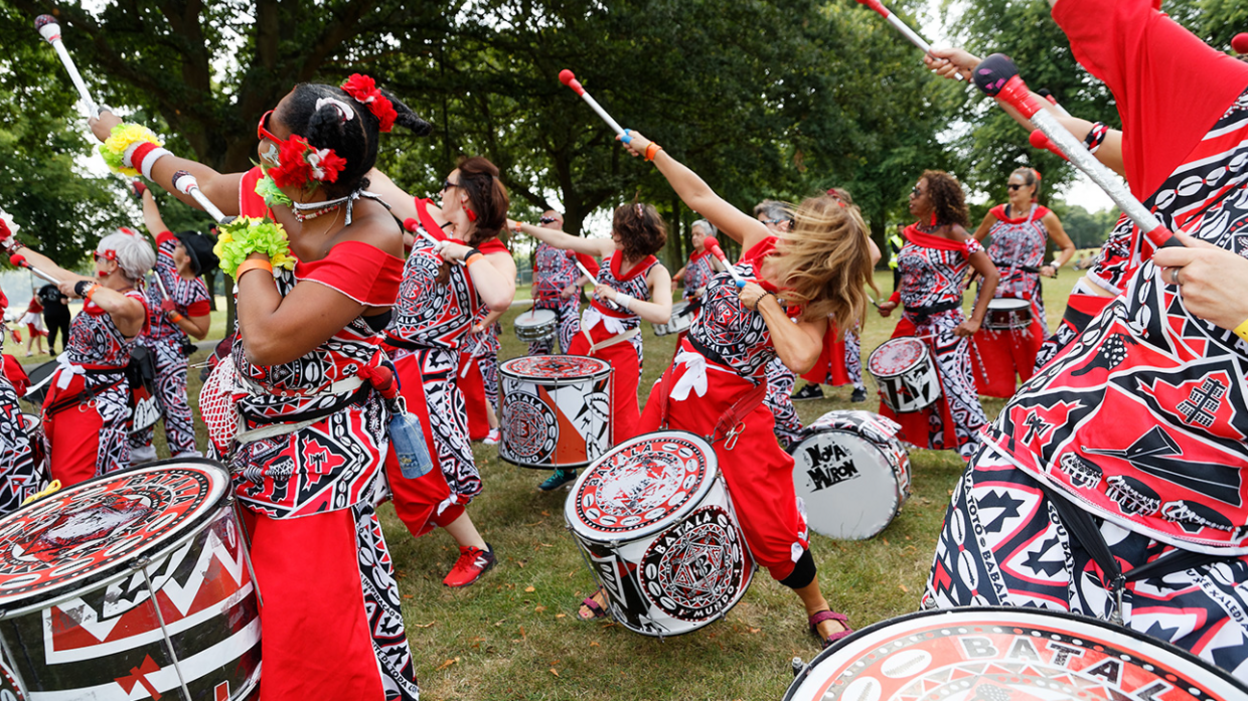
The carnival celebrates Caribbean and African heritage
According to Tara, the carnival was once "one of the biggest in Europe" and she hopes it can return to its former glory.
"This year has been a massive learning curve, we've had a lot to overcome and to understand about how things work," she says.
"God willing, I will still be there next year and, moving forward, it needs to be as soon as carnival is done, give it a month and we're working towards the next one.
"I'm on the old team now. We need to bring these young people in and see how they want to make it move forward."
Get in touch
Tell us which stories we should cover in Leicester
Follow BBC Leicester on Facebook, external, on X, external, or on Instagram, external. Send your story ideas to eastmidsnews@bbc.co.uk, external or via WhatsApp, external on 0808 100 2210.
Related topics
- Published22 June
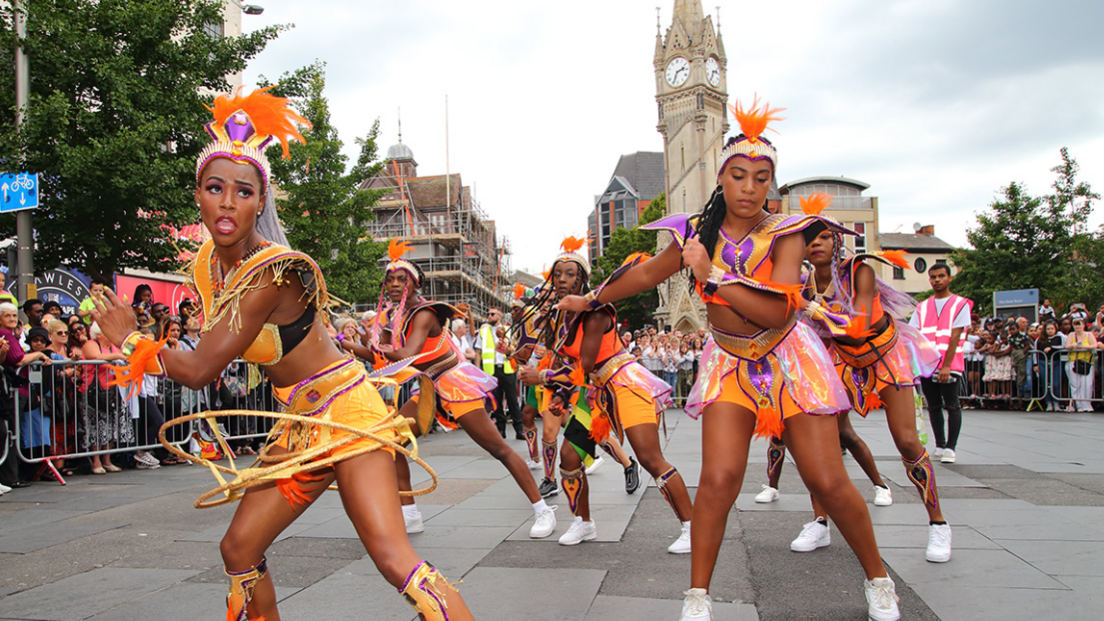
- Published9 July 2024
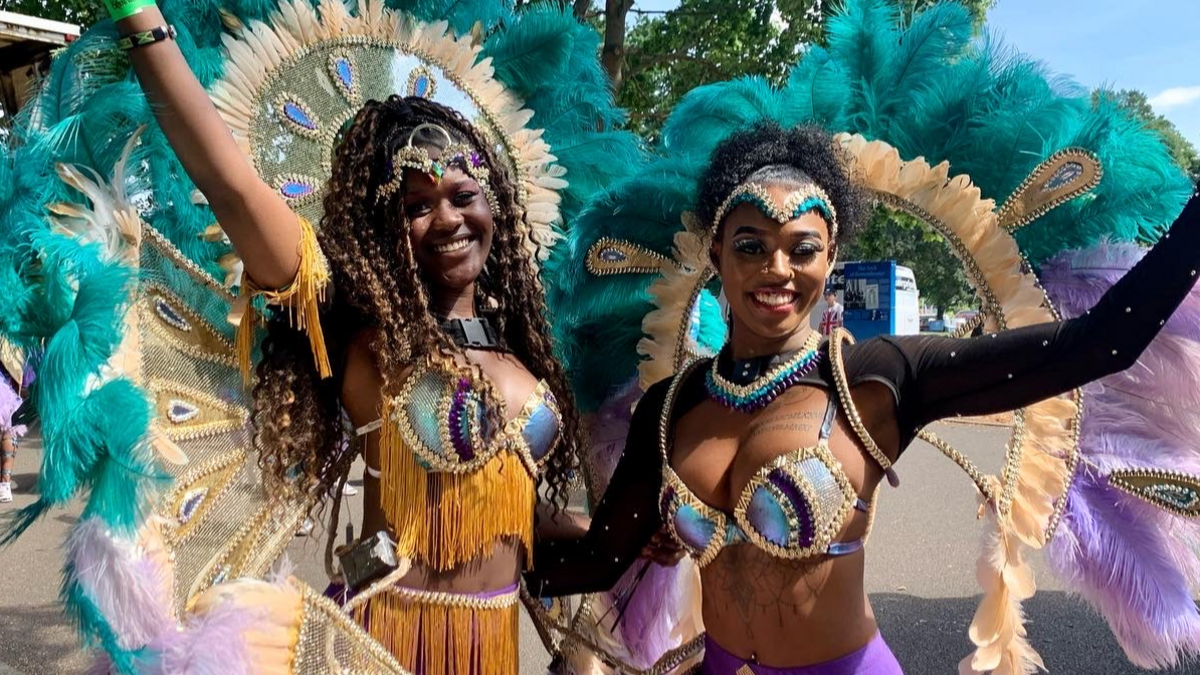
- Published24 July 2024
